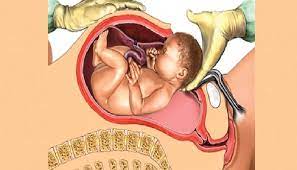According to a new research from the World Health Organisation, CS use continues to rise globally, now accounting for more than 1 in 5 (21 percent) of all childbirths. This number is set to continue increasing over the coming decade, with nearly a third (29 percent) of all births likely to take place by caesarean section by 2030, the research finds.
WHO said worldwide caesarean section rates have risen from around 7 percent in 1990 to 21 percent as of last Wednesday and are projected to continue increasing over this current decade.
WHO recommends the national CS rate to be between 10 and 15 percent with less than 10 and greater than 15 percent representing underuse and overuse of maternal and child health care services, respectively.
The experts say while a caesarean section can be life-saving, it can also be medically unnecessary.
Akinola said while the rate of CS is low in Nigeria, it is becoming an epidemic in some countries.
“What we have in Nigeria in most cases is facility-based, so each hospital can only talk about what is happening in their hospital, not what is happening in the society. Overall, our CS rate is probably about 6 percent, if not lesser,” he said.
Adding, Akinola said if CS use is less than than 15 percent, it might be that it is not being offered enough when necessary. “So that is why we still have obstructed labour and prolonged labour in patients who ought to have caesarean section.”
He noted that some patients prefer CS to vaginal birth because of the pains associated with vaginal delivery.
“Sometimes, a patient wants to have c-section done because she doesn’t want to take the risk with normal labour. CS is straightforward, you know the time you want to go in and you know the time you are coming out.
“Sometimes, litigation alone is a factor, such that you want everything to go well; you don’t want to take the risk of long labour. So, it’s enough reason to go for CS, just to be on the safe side.
“And the higher the rate of litigation, the higher the CS rate. Labour is not easy; labour is difficult, so it comes with difficulty sometimes.So you don’t want to take such risk,” Akinola said.
The gynaecologist, however, disclosed that countries with high cases of caesarean section are narrowing the indications of CS.
“This means that you must have tried for so long and fulfilled the indications for CS before it is done and you are sure that that is the best option.”
Corroborating Akinola’s statement, the Chairman, Lagos State chapter of SOGON, Dr.Akinde said the rate of CS is alarming globally.
“There has been an increasing trend in the rate of CS. The rate is so alarming now that people are beginning to question the rationale behind it.
“People are becoming litigation-conscious and if a woman loses the baby in the course of delivery, she can go to court and medical practitioners are scared of facing litigation. So, they want to have a live mother and a live baby, than having to tell stories.
“We also have a number of women coming up to say they don’t want to go through pain or the hassles of vaginal delivery and they just want to have CS.
“CS can be done under anaesthesia, whereby the woman is awake and within one hour, everything is finished. Unlike when a woman wants to go through natural labour and the minimum hours the woman will suffer the pain is 12 hours.
“So it’s because of patients’ demand and practitioners are becoming more conscious of litigation.
“Medical practitioners are making conscious efforts and making reviews to keep the caesarean section rate to the barest minimum,” he said.
Akinde noted that the rate of CS is as high as 50 percent in some countries but people are making conscious efforts to make sure that the rate does not go above WHO recommendation.
“Medical practitioners, obstetricians in particular, are making conscious efforts to review their practice and want to make sure that the CS is justified for any patient.
“From time to time, practitioners review their practice and make sure that it is in uniformity with the best practice in the world to ensure that the CS is justified.
“Particularly when you practise in an organised sector, where your actions are likely to be questioned, you may be asked why you have to do a CS.
“So the practice of obstetrics have got to the level where you don’t just do a CS just for the sake of doing it but it has to be justified. So, you don’t just cut every woman just because you know how to cut,” Akinde said.
Rather than recommending specific target rates, WHO underscores the importance of focusing on each woman’s unique needs in pregnancy and childbirth.
“It’s important for all women to be able to talk to healthcare providers and be part of the decision making on their birth, receiving adequate information, including the risks and benefits. Emotional support is a critical aspect of quality care throughout pregnancy and childbirth,” said the Medical Officer at WHO and HRP, Dr. Ana PilarBetran,
WHO recommends some non-clinical actions that can reduce medically unnecessary use of CS, within the overall context of high quality and respectful care.
source: HealthWise

 Medical experts say the fear of litigation and patients’ demand are among the major factors influencing the rising incidence of caesarean section in the world.
Medical experts say the fear of litigation and patients’ demand are among the major factors influencing the rising incidence of caesarean section in the world. 




